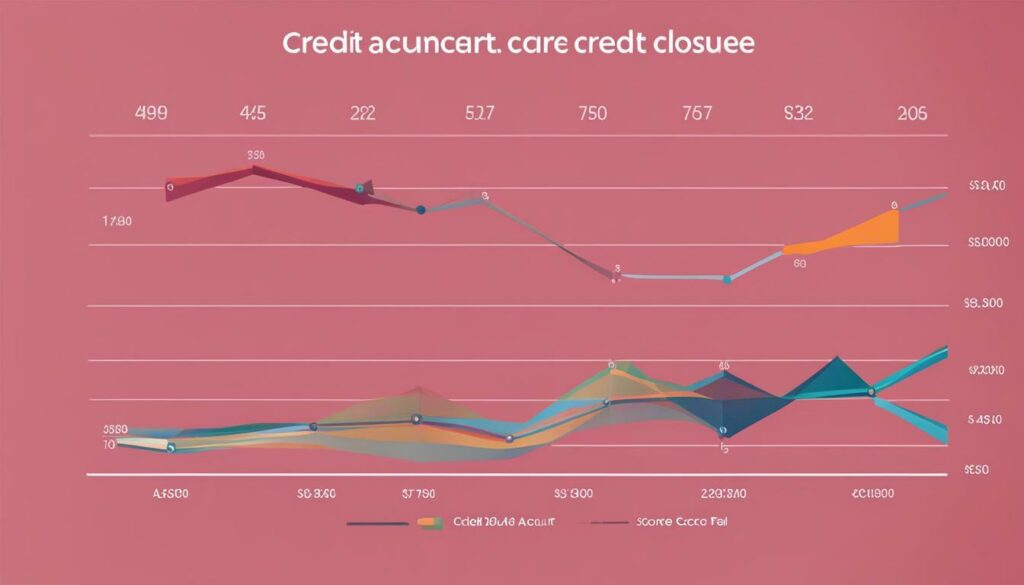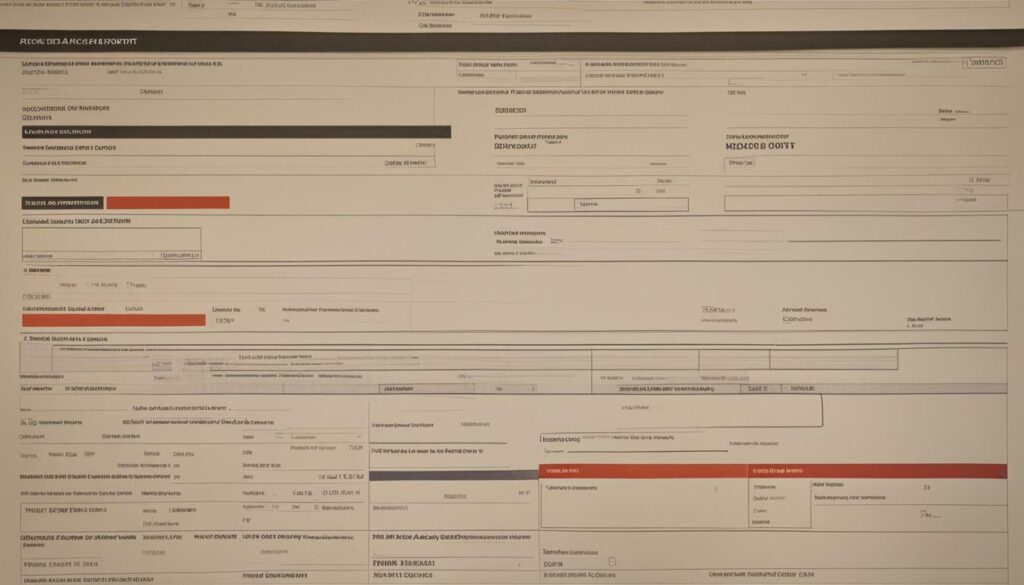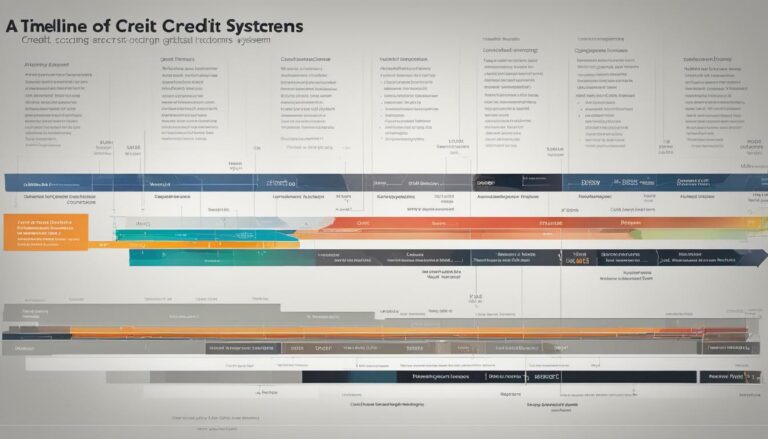Understanding the Effect of Closing Credit Accounts on Your Score

Closing a credit card account can have a significant impact on your credit score, and it’s crucial to fully comprehend the consequences before taking any action. There are several reasons why closing an account can negatively affect your credit score. Firstly, it reduces your available credit limit, which can increase your credit utilization ratio and indicate higher risk to lenders. Additionally, closing an account can lower the average age of your accounts on your credit report, which can also affect your credit score. It’s important to understand these factors and consider the potential outcomes before making any decisions.
- Closing credit card accounts can have a negative impact on your credit score.
- It reduces your available credit limit and can increase your credit utilization ratio.
- Closing an account can lower the average age of your accounts on your credit report.
- Closed accounts persist on your credit report and continue to be factored into your credit score.
- There are situations where closing a credit card may be necessary, such as high fees, high interest rates, or difficulty managing debt.
Factors That Contribute to Credit Score Impact
Several factors come into play when assessing the effect that closing credit accounts can have on your credit score, including your credit utilization ratio, credit history length, and credit mix. Understanding these factors is crucial in making informed decisions regarding your credit.
Your credit utilization ratio is the percentage of available credit you are currently using. When you close a credit account, your total available credit decreases, which can increase your credit utilization ratio. Lenders typically view higher utilization ratios as an indication of higher risk. Ideally, you should aim to keep your credit utilization ratio below 30% to maintain a good credit score.
Another important factor is your credit history length, which refers to how long you have been using credit. Closing a credit account can potentially lower the average age of your accounts on your credit report. A shorter credit history length may negatively impact your credit score, as lenders prefer to see a longer credit history, demonstrating responsible credit usage over time.
Lastly, your credit mix, or the variety of credit accounts you have, also influences your credit score. Closing a credit account can reduce the diversity of your credit mix, which may have a slight negative impact on your credit score. It’s generally beneficial to have a good mix of credit types, such as credit cards, loans, and mortgages, to show lenders that you can manage different types of credit responsibly.
🚨 TUIC Errors + Low Credit Score?
CreditScoreIQ helps you build credit faster by reporting utility bills to all 3 bureaus—while you dispute errors.
Start Building Credit Today →| Credit Score Impact Factors | Effect on Credit Score |
|---|---|
| Credit Utilization Ratio | Increased ratio, potential negative impact |
| Credit History Length | Possible decrease in score due to shorter history |
| Credit Mix | Slight reduction in score due to decreased diversity |
While these factors do contribute to the impact of closing credit accounts on your credit score, it’s important to note that the effect may vary depending on individual circumstances and other factors in your credit profile. It’s always advisable to carefully consider the potential consequences before making any decisions.
Now that you understand the factors that contribute to credit score impact when closing credit accounts, you can make more informed decisions about managing your credit. It’s important to weigh the potential benefits against the potential drawbacks and take into account your overall financial situation. Consulting with a financial advisor or credit counselor can also provide valuable insights and guidance tailored to your specific needs.
Impact of Reduced Available Credit
Closing a credit account reduces your available credit limit, which can have negative ramifications for your credit score, particularly in terms of your debt-to-credit ratio. Your debt-to-credit ratio, also known as your credit utilization ratio, is a significant factor that lenders consider when assessing your creditworthiness.
When you close a credit account, the amount of credit you have available decreases. This can cause your debt-to-credit ratio to increase if you carry balances on your other accounts. For example, if you have a total credit limit of $10,000 and your outstanding balances add up to $2,000, your debt-to-credit ratio is 20%. However, if you close a credit account with a $5,000 credit limit, your total available credit decreases to $5,000. If you still have the same $2,000 in outstanding balances, your debt-to-credit ratio jumps to 40%. A higher debt-to-credit ratio suggests to lenders that you may be relying too heavily on credit and can be seen as a risk factor.
It’s important to note that even if you pay off your credit card balances in full each month, closing a credit account can still impact your credit utilization ratio. This is because the balance on your credit card is typically reported to the credit bureaus before your payment is due. So, even if you pay off your balance on time, if the credit card issuer reports the balance to the credit bureaus before your payment is processed, it may temporarily affect your credit utilization ratio.
Table 1: Impact of Reduced Available Credit
| Credit Limit | Outstanding Balances | Debt-to-Credit Ratio |
|---|---|---|
| $10,000 | $2,000 | 20% |
| $5,000 | $2,000 | 40% |
Managing your available credit and debt-to-credit ratio is crucial for maintaining a healthy credit score. It’s generally recommended to keep your credit utilization ratio below 30%. Therefore, closing a credit account should be done with careful consideration, as it can impact your creditworthiness and potentially lower your credit score.
Effect on Average Account Age
When you close a credit card account, it can lead to a decrease in the average age of your accounts on your credit report, which in turn may have an impact on your credit score. Lenders consider the length of your credit history when evaluating your creditworthiness. The longer your credit history, the more reliable you appear to lenders.
The average age of your accounts is calculated by adding up the ages of all your open accounts and closed accounts, then dividing by the total number of accounts. Closing a credit card account that has been open for a significant period of time can significantly reduce the average age of your accounts. This reduction may impact your credit score because it suggests a shorter credit history and potentially less experience managing credit.
It’s important to note that closed accounts will still remain on your credit report for a number of years. However, they may not contribute as much to your credit score as active accounts. To illustrate the potential impact of closing a credit card account on the average age of your accounts, consider the following example:
| Account | Average Age (in years) |
|---|---|
| Account 1 (Closed) | 5 |
| Account 2 (Open) | 10 |
| Account 3 (Open) | 8 |
In this example, the average age of the three accounts is 7.67 years [(5+10+8)/3]. If Account 1 (the closed account) is removed, the average age of the remaining accounts would increase to 9 years [(10+8)/2]. This decrease in average account age may have a negative impact on your credit score.

Despite closing a credit account, it is crucial to note that the account remains on your credit report for years and still plays a role in determining your credit score. Closed accounts can have lingering effects on your creditworthiness, so it is essential to manage them responsibly.
One important aspect to understand is that closed accounts continue to be factored into your credit score, which is based on the information in your credit report. Lenders and financial institutions use this score to assess your creditworthiness and determine the terms of any credit you may apply for in the future.
Having closed accounts on your credit report can impact your credit score in several ways. Firstly, closing an account reduces your available credit limit, which can increase your credit utilization ratio. This ratio is the percentage of your available credit that you are currently using, and a higher ratio can be seen as a higher credit risk.
| Factors That Contribute to Credit Score Impact |
|---|
| Credit Utilization Ratio |
| Credit History Length |
| Credit Mix |
Another factor affected by closing credit accounts is the average age of your accounts. Closing an account can lower the average age, which can impact your credit score. Lenders often place value on longer credit histories, as they indicate a longer track record of managing credit responsibly.
It is important to keep in mind that closed accounts can stay on your credit report for years after closure. This means that even if you decide to close an account, its presence and history will continue to be considered by lenders when evaluating your creditworthiness. Therefore, it is crucial to carefully consider the implications and potential impact on your credit before making any decisions.
Summary
- Closed accounts remain on your credit report for years and continue to influence your credit score
- Closing an account can affect your credit utilization ratio and average account age
- Lenders use credit scores to evaluate creditworthiness for future credit applications
- It’s important to manage closed accounts responsibly and make informed decisions

While generally advisable to keep credit card accounts open, there are circumstances where closing a card might be reasonable, such as when it carries a burdensome annual fee, high interest rate, or if you are facing challenges in managing your debt. In these situations, closing the credit card can help alleviate financial strain and prevent further debt accumulation.
For example, credit cards with high annual fees can eat into your savings and provide little value in return. If you find yourself paying an excessive fee each year for benefits that you rarely use or do not need, closing the account can save you money in the long run.
Similarly, credit cards with high interest rates can be detrimental to your financial health. If you are struggling to keep up with the payments and find yourself accumulating more debt due to high interest charges, closing the card can help you regain control over your finances.
Lastly, closing a credit card might be necessary if you are facing challenges in managing your debts. If you have multiple credit cards and find it overwhelming to keep track of payments, closing one or more accounts can simplify your financial obligations and make it easier to stay on top of your debt repayment plan.
Table: Pros and Cons of Closing a Credit Card
| Pros | Cons |
|---|---|
| Save money on annual fees | Reduces available credit limit |
| Eliminate high interest charges | May lower credit score |
| Simplify debt management | Impact average age of accounts |
Before making a decision to close a credit card, carefully consider the pros and cons associated with account closure. Assess your financial situation, budget, and long-term goals to determine if closing the credit card aligns with your needs. If possible, explore alternatives such as negotiating a lower annual fee with the issuer or freezing the account temporarily until your financial situation improves.
Remember, it’s crucial to check your credit history before closing a credit card to ensure it won’t have significant negative impacts. By examining your credit report, you can assess how closing the account will affect factors such as credit utilization ratio and average age of accounts. Armed with this information, you can make an informed decision that best suits your financial well-being.
Steps to Take When Closing a Credit Card
If you decide to close a credit card, it’s essential to follow a few crucial steps, including clearing any outstanding balances, redeeming any accumulated rewards, and contacting the credit card issuer’s customer support to ensure a smooth closure process.
Firstly, make sure to clear any outstanding balances on the credit card before proceeding with the closure. This will ensure that you don’t leave any unpaid debts behind and avoid any negative impact on your credit history. Paying off the balance in full will also help you avoid any interest charges or late payment fees.
Secondly, if you have any rewards or points accumulated on the card, make sure to redeem them before closing the account. Some credit cards offer cashback, travel rewards, or other benefits that you may have earned over time. Take advantage of these rewards before closing the account as they may not be accessible once the card is closed.
Lastly, when you have cleared the outstanding balance and redeemed any rewards, it’s important to contact the credit card issuer’s customer support to initiate the closure. You can typically find the customer support number on the back of your credit card or on the issuer’s website. Inform them of your decision to close the card and request confirmation of the closure in writing. This will serve as evidence that you have properly closed the account and prevent any potential disputes in the future.

Remember, closing a credit card is a serious decision that can have an impact on your credit score and financial profile. By following these steps, you can ensure that the closure process is handled smoothly and responsibly.
Alternatives to Closing a Credit Card
Instead of closing a credit card account outright, there are alternatives that might be worth exploring, such as negotiating a lower annual fee with the credit card issuer or temporarily freezing the account. These alternatives provide options to manage your credit card without completely closing the account and potentially impacting your credit score.
One alternative is to contact the credit card issuer and ask if they would be willing to lower the annual fee. This can be particularly useful if you find that the annual fee is too high for the benefits you are receiving from the card. By negotiating a lower annual fee, you can continue to benefit from the card’s features and maintain a positive credit history without incurring excessive costs.
Another option is to freeze the credit card account temporarily. Freezing the account allows you to take a break from using the card while keeping it open. This can be beneficial if you are trying to curb your spending or if you suspect fraudulent activity on your account. Freezing the account provides a temporary solution without the long-term consequences of closing the account.
Table: Pros and Cons of Alternatives to Closing a Credit Card
| Option | Pros | Cons |
|---|---|---|
| Negotiating a lower annual fee | – Potentially save money on annual fees – Maintain a positive credit history |
– Not guaranteed to be successful – May require ongoing negotiations |
| Freezing the account | – Take a break from using the card – Protect against fraudulent activity |
– Cannot use the card while frozen – Requires contacting the credit card issuer to freeze or unfreeze |
Before considering any alternative to closing a credit card, it is essential to evaluate your specific financial situation and the terms of your credit card agreement. Reviewing the benefits, costs, and potential impacts on your credit score can help you make an informed decision. Remember to check your credit history and assess the potential negative impacts before pursuing any alternative.
By exploring alternatives to closing a credit card, you can make the best decision for your financial well-being while maintaining a positive credit history.

Note: The image above provides a visual representation of the alternatives to closing a credit card. It is important to carefully consider your individual circumstances and consult with a financial advisor if necessary.
The Importance of Checking Your Credit
Before closing a credit card account, it is crucial to check your credit history to ensure that taking such a step won’t have any adverse effects on your overall credit profile. Your credit history plays a significant role in determining your creditworthiness and can have a long-lasting impact on your financial future. By checking your credit, you can get a clear understanding of your current credit standing and evaluate the potential consequences of closing a credit card account.
One of the main reasons to check your credit before closing an account is to assess how it may negatively impact your credit score. Factual data suggests that closing a credit card account can lower your credit score due to the reduced available credit limit and the potential impact on your credit utilization ratio. When you close an account, your available credit decreases, which means that your credit utilization ratio might increase if you continue to carry the same amount of debt. Lenders often view higher credit utilization ratios as an indicator of higher risk, which can result in a lower credit score.
Another essential aspect to consider when checking your credit is the average age of your accounts. When you close a credit card account, it can lower the average age of your accounts on your credit report. Credit scoring models typically consider the length of your credit history as a factor in calculating your credit score. Therefore, a lower average age of accounts may potentially have a negative impact on your credit score.
Table: Factors to Consider Before Closing a Credit Card Account
| Factors | Potential Impact |
|---|---|
| Credit utilization ratio | Higher ratio, higher risk perception |
| Average age of accounts | Potential decrease in credit score |
Checking your credit before closing a credit card account allows you to make an informed decision based on your specific financial situation. If you find that closing the account won’t significantly impact your credit history or if you have a valid reason to do so, then it may be a suitable course of action. However, it’s essential to weigh the potential consequences and explore alternatives before closing the account.

In conclusion, checking your credit history is crucial before closing a credit card account. Understanding the potential negative impacts on your credit score, such as changes in credit utilization ratio and average age of accounts, can help you make an informed decision. By evaluating your credit profile, you can determine whether closing the account aligns with your financial goals and needs. Remember, it’s generally advisable to keep credit card accounts open unless there is a valid reason for closure.
Conclusion
In conclusion, while closing credit card accounts can have an impact on your credit score, it should only be done if there is a valid reason, as it is generally more prudent to keep credit card accounts open.
Closing a credit card account can negatively impact your credit score for a few reasons. Firstly, it reduces your available credit limit, which can increase your credit utilization ratio and indicate higher risk to lenders. A higher credit utilization ratio can lower your credit score.
Additionally, closing an account can lower the average age of your accounts on your credit report. Your credit history length is an important factor in determining your credit score, and a lower average age can potentially lower your score.
However, it’s important to note that closed accounts stay on your credit report for years and continue to be factored into your credit score. Therefore, it’s crucial to manage closed accounts responsibly.
There are certain situations where closing a credit card makes sense. For example, if a credit card has a high annual fee or a high interest rate, it may be more beneficial to close the account. Additionally, if you are struggling to manage your debt, closing a credit card can help you regain control of your finances.
When closing a credit card, it’s important to take the necessary steps. Make sure to pay off any outstanding balances and redeem any rewards before closing the account. Contacting customer support ensures a proper closure and prevents any future issues.
If you are considering closing a credit card, it’s also worth exploring alternatives. For instance, you can ask the issuer to lower the annual fee or temporarily freeze the account to avoid closing it completely.
Before closing a credit card account, it’s crucial to check your credit to assess potential negative impacts on your credit history. Monitoring your credit regularly allows you to make informed decisions and avoid any surprises.
Overall, keeping your credit card accounts open is generally advisable unless there is a valid reason for closing them. By responsibly managing your credit, you can maintain a healthy credit score and financial stability.
FAQ
What factors contribute to the impact of closing credit accounts on your credit score?
Closing credit accounts can impact your credit score through factors such as credit utilization ratio, credit history length, and credit mix.
How does reducing available credit by closing credit accounts affect your credit score?
Reducing available credit by closing credit accounts can increase your debt-to-credit ratio, potentially lowering your creditworthiness.
What is the effect of closing credit accounts on the average age of your accounts?
Closing credit accounts can lower the average age of your accounts on your credit report, which can affect your credit score.
How long do closed accounts stay on your credit report and continue to impact your credit score?
Closed accounts stay on your credit report for years and continue to be factored into your credit score.
In what situations does closing a credit card make sense?
Closing a credit card may make sense if it has a high annual fee, a high interest rate, or if you are struggling to manage your debt.
What steps should you take when closing a credit card?
When closing a credit card, it’s important to pay off any outstanding balances, redeem any rewards, and contact customer support to ensure the account is closed properly.
What are the alternatives to closing a credit card?
Alternatives to closing a credit card include asking the issuer to lower the annual fee or freezing the account temporarily.
Why is it important to check your credit before closing a credit account?
Checking your credit before closing a credit account is important to assess potential negative impacts on your credit history.
Should you keep your credit card accounts open unless there is a valid reason for closing them?
Yes, it is generally advisable to keep your credit card accounts open unless there is a valid reason for closing them.
Ready to Improve Your Credit?
Disputing TUIC errors is step one. Step two? Boost your score by reporting utility payments with CreditScoreIQ.
Get Started Now (Only $1 Trial) →3-bureau reporting • $1M identity insurance • Dark web monitoring






